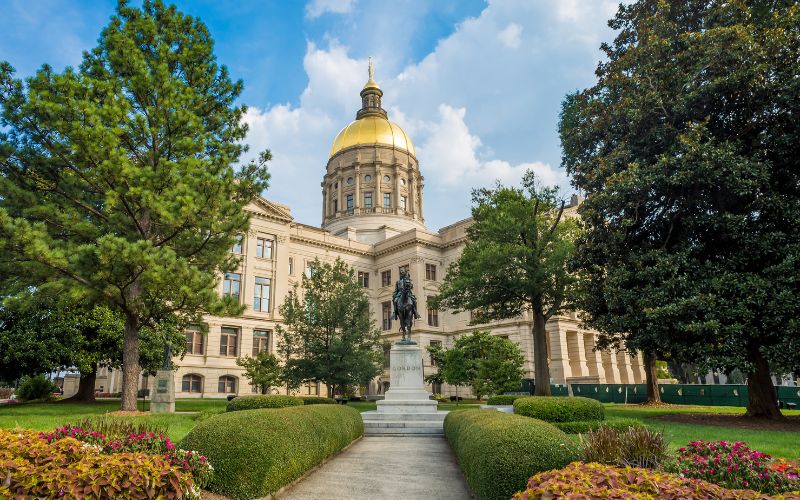TX: Meyerland Area HOA May Need to Close Community Pool as Costs Rise Due to Constable Raises

The community pool in a Meyerland-area neighborhood has served as a refuge from Houston’s oppressive summer heat and a gathering space for the community since first opening in the 1960s. But the rising cost of Barkley Square's additional constable patrols might soon force its closure, according to members of the civic club.
Browse By Category
Sign up for Our Newsletter
The community pool in a Meyerland-area neighborhood has served as a refuge from Houston’s oppressive summer heat and a gathering space for the community since first opening in the 1960s. But the rising cost of Barkley Square’s additional constable patrols might soon force its closure, according to members of the civic club.
Harris County deputies are getting raises soon, and the amount neighborhoods pay for extra patrols could rise by as much as 24% to help cover the cost, Harris County leaders have said. Residents of the 200-home neighborhood near Meyerland are in a heated debate – should the neighborhood’s civic club continue upkeep on the pool, or should they tear it up and sell the land to afford rising contract costs with Precinct 5?
“There’s a lot of tension in the community right now,” said Jim Saye, a street director for the civic club and the man who maintains the community pool. “It all comes back to that constable contract, which is the elephant in the room.”
Barkley Square is too small to maintain its own contract with Harris County for constable patrols, but has long partnered with the nearby Maryland Estates to secure constant patrols from two constable cars, Saye said. There has been some talk over the years of whether residents might save money by switching to private security, but the fact that the county subsidizes the contracts and that constables can make arrests and investigate crimes has always kept Barkley Square paying for the contract.
Officials with Precinct 5 Constable Terry Allbritton, which handles the contract, did not respond to a request for comment about the dispute as of Wednesday afternoon. Emails sent to the civic club’s listed address went unreturned as of Wednesday afternoon.
The pool or the patrols
While the 24% increase in homeowner dues in a year is a steep climb for the $488 rates (of which around 60% is for security) currently in place. The issue is further complicated by association bylaws restricting the amount the group can raise rates in a given year by $20, Saye said. The longtime Barkley Square resident estimated it costs around $26,000 per year to maintain the pool.
There is a generational divide in the argument over the pool versus the security, Saye said. On the one side are younger parents with children who enjoy the pool and, on the other, a sizeable older population that doesn’t use the pool, but is worried about rising crime rates, Saye said.
“This highlights the ‘both and’ nature of a community’s sentiment on crime,” said Charles Blain, president of the Urban Reform Institute, a right-of-center organization dedicated to creating free market solutions for urban issues. “It’s both the crime rate and how people feel. A younger person might feel safe living in a higher-crime zip code because they feel they can defend themselves, while an older person may feel deeply unsettled and unsafe in one of the safest neighborhoods simply because they heard of a break-in nearby and see themselves as helpless if it were to happen to them. Both can be irrational thoughts, yet data alone is unlikely to change their perspective on their neighborhood.”
The arguments have intensified in recent weeks, with some residents waking up to unsigned fliers accusing the pro-pool civic club members of sacrificing security in defense of the pool. And a recent civic club meeting at the nearby Westbury Baptist Church devolved into shouting and accusations.
Some neighbors brought posters with photos of neighborhood children swimming and attending the community’s annual 4th of July pool party. Another poster showed renderings of a new pool, outfitted with a diving board and water slide. “A bright future,” the poster read. Other signs at the meeting showed photos of the damaged concrete and rotting wood surrounding the pool area, with estimates for what it would cost to replace the pool with a neighborhood green space.
Throughout Tuesday’s meeting, residents clashed with one another, including Saye, who argued with the civic club’s president, Kristin Reeves, because the two couldn’t agree on figures for how many residents used the pool this summer. Several residents expressed concern during the meeting about possibly losing security from the constables, and another said the disagreements among neighbors are “tearing the community apart.” One resident said she would sue the neighborhood if they replaced the pool with a green space, claiming it would bring down the value of her property.
“It would be a legal kibosh,” she said.
Multiple residents declined to speak on the record about the ongoing dispute, saying they were worried about retaliation from opposing factions. Reeves said she needed to confer with her attorneys before returning an email seeking comment on this story.
Need for security
Much of the city has seen a decline in many types of crime in recent years, coming down from highs in 2021. But the Meyerland super neighborhood, of which Barkley Square is part, has seen an uptick in crime rates in recent years. But much of that increase is centered around small swaths of the super neighborhood.
Data has rarely reflected how Houstonians perceive crime, however. Even as rates citywide declined after 2023, a majority of residents cited it as a chief concern in the 2023 mayoral election that brought John Whitmire to office.
Harris County’s contract deputy program has long served as a chance for residents and neighborhood associations to pay extra money for additional security. The program, after years of growth, now includes more than 1,200 deputies across the constables’ and sheriff’s offices.
For decades, the program has fueled the steady growth of the Harris County constables’ offices, which handle about two-thirds of the contracts; the sheriff’s office runs the other third.
The eight independently elected constables added deputies at twice the rate of the sheriff over the last decade, growing their budgets by 70%.
They now deploy nearly 850 contract deputies, plus dozens of general patrol deputies, and collect $236 million a year in funding. The sheriff’s crime-fighting division gets $293 million.
Source: The Houston Chronicle
Trending Now
Related Article
Sign up for Our Monthly Newsletter
Sign up below for monthly updates on all HOA Resource















